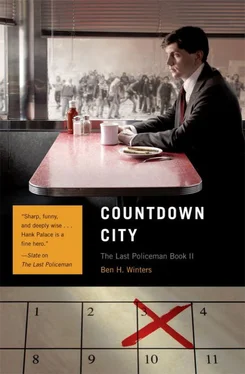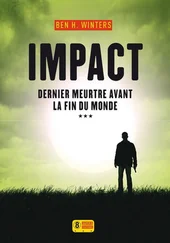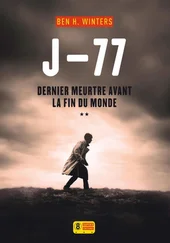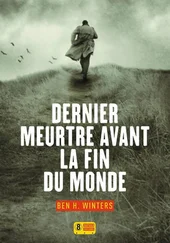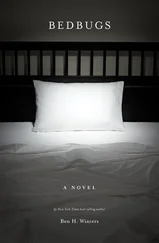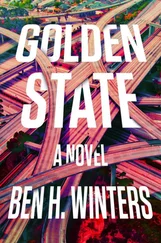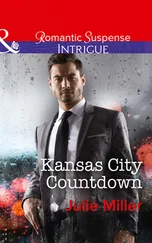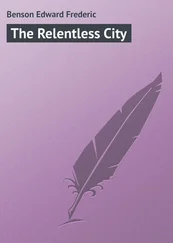There is an ache up and down the length of my body. In olden days they would strap you, hands and feet, to a machine, turn a wheel to make you talk. Or even not to, just to watch you experience it. Or because there was someone visiting the court who had never gotten a chance to see the machine in action. Another one of those things that makes you think, well, okay, the end of the human race, what are you gonna do?
I read it again, the pink page, Martha’s slightly slanted all-block-letter handwriting, just like the quote from St. Catherine above her sink. But different in tone, so different:
HE’S DEAD N. IS DEAD HE’S REALLY DEAD
I’LL NEVER SEE HIS FACE AGAIN OR KISS HIM AGAIN
WHEN I CLOSE MY EYES THERE HE IS THE GOLD-CAPPED SMILE THE HAND-ROLLED SMOKES THE SILLY TATTOOS
BUT THEN I OPEN THEM AND HE’S GONE AGAIN
OK SO LET THE WORLD DIE NOW IT’S DEAD ALREADY WITHOUT HIM BUT
It ends like that, in the middle of a thought, to be continued on the next page. There’s a date at the top, July fifth, just a couple weeks ago.
He’s dead , she wrote, N.’s dead he’s really dead .
Who, Martha? Who is N.?
I still don’t check my watch, but I can feel it getting later. The day is wearing itself down, the sunbeams appearing and disappearing in the slitted windows. I wish I could send out my thoughts like medieval telegraph crows to gather clues and bring them back to me, up here in my doomed chamber.
Who was N., Martha? With gold teeth and hand-rolled cigarettes and funny tattoos?
How many guns are left in that storehouse by the power station, Julia Stone? Would you run and check for me? Do you even need to look, or is it you who’s spirited one away?
Officer Nils Ryan—Brett’s buddy from the trooper days—Nils starts with N. But there’s another one, another N., and I can’t remember it. The world spins. This case was like a straight line, simple and clean: A man is missing. Find the man. And now it’s like the wilderness is crowding in along the road, turning the world into a thicket, a maze, a tangle.
I squeeze up and down along the edges of my arm and feel nothing and meanwhile my breath is ragged and uneven. At a certain point I will cross a threshold where it won’t matter either way; “loss of limb and/or death,” the double-conjunction pivot point resolving decisively on “and.”
The kids are going to be okay. Alyssa and Micah Rose at Quincy Elementary. I gave that over to Culverson, and Detective Culverson will stay on top of it. I smile at the thought of Culverson—at the Somerset right now, dining alone, asking Ruth-Ann politely what he owes her.
The sun is losing its luster. It’s late afternoon. Next will be nighttime.
The only thing is that it’s too bad about Nico. Because I did, I promised her I would protect her until one or both of us were dead. She was drunk and I was fifteen, but I promised her and I meant what I said. I tell her I’m sorry, in my mind somewhere. If there is anyone that I can send a telepathic message to, it’s my sister, and I let my mind go blank and launch it into the air, Nico, my dear, I am sorry.
* * *
I open my eyes and see my watch without meaning to. It’s 5:13. Approximately six and a half hours since impact, since the bullet tore the hole into my biceps.
I haven’t heard from Houdini in a long time. Perhaps he decided to abrogate our contract, escaped into the woods, evolved into a sea dog or a wolf. Good for him. I reach up to my face as if to make sure it’s still there. It’s dirty. Cragged. Lined in a way I don’t remember. The edges of my mustache are growing in weird, all fuzzy and uneven like a disintegrating coastline. I hate that.
I read Martha’s journal page again. HE’S DEAD N. IS DEAD HE’S REALLY DEAD.
* * *
When the shooting begins it begins all at once, not one or two but a hundred guns firing all at the same time, and of course I can’t move, can’t go down there to the water’s edge; all I can do is look from the narrow windows of the blockhouse and watch the horror unfold.
At some point during this long hot strenuous expanse of a day, one of those tiny dots I saw out on the horizon this morning has made its way into the harbor and dropped anchor out by the lighthouse; a cargo ship with long iron sides, anchored and massive, maybe half a mile offshore, with dozens of tiny crafts bobbling at its sides like suckling children. Six or seven of these little boats have been let down and are on their way in, maneuvering for shore, crowded with passengers, their small motors puttering. And now—as I’m watching—those boats are coming under withering fire.
“No,” I whisper.
But it’s just as Brett said, it’s a Coast Guard cutter, the sleek lines and the iron prow, the bristling masts and antennae, the noble shape of it parked in the water perpendicular to shore, offering not a lifeline to the incoming boats but a cannonade.
The small boats perform useless evasive maneuvers, rowboats and rafts wheeling unevenly this way and that while the cutter strafes the water, kicking up mountains of churning foam.
Seabirds dart overhead, flying fast, away from the pop of the guns.
“No,” I say, way the hell up here from my tower window, uselessly, ridiculously. “No.”
The rafts begin to capsize, tipping their inhabitants into the water, where they paddle and scream and grab for one another—children, old women, young men—and me just watching, helpless, trapped inside the blockhouse, inside my injury, coughing and lightheaded, watching them drown, watching them swim, watching the cutter send out speedboats to gather up those who remain.
“Stop,” I whisper, my eyes rolling up into my head. “Police.”
Children clutching at one another, little bodies boiling up in the breakers, lashed by the wake of the ships, opening their mouths to scream even as they are pulled under by the waves.
* * *
In the silence when it’s over I slip into sleep, and in my fever dream Brett is alive and squats beside me with his M140 pointed out the slit window of the blockhouse. He does not say “I told you so.” That is not his style. What he does say though is, “It was abrogated. Our contract was abrogated .” I want to warn him that the barrel of his rifle is poking back into the blockhouse at the next window over, a cartoon image, like it loops around out there and comes back in, pointing right at his own face.
Don’t do it , I say, don’t shoot . But my mouth moves and the words don’t come and he fires and an instant later topples over backward, somersaults and rolls till he’s still.
In the next dream, the next scene, he’s got a skeet gun and we’re up on the roof, me and him, and this time he smiles and when he smiles his mouth glows and he leans back and shoots up, up, up and the asteroid tumbles out of the sky, and Houdini goes and retrieves it, a burning planet of rock and metal clutched in his teeth like a fetched duck.
* * *
I wake up, because of a distant unfamiliar noise, and the first thing I think is that he wanted to leave .
He was not unfaithful to her; she was to him.
Oh, Martha—
She had taken a lover, the man she identified as N., and then that lover was killed in the riots on Independence Day.
And Brett had not left Martha, but he had been yearning in his heart to leave. He had information, he had a plan, he knew the good he wanted to do in the world. He even knew where he could go to get the guns that he needed to do it. But he could not and would not go, because he had made promises before his wife and before God and he would not release himself from those promises.
Читать дальше
